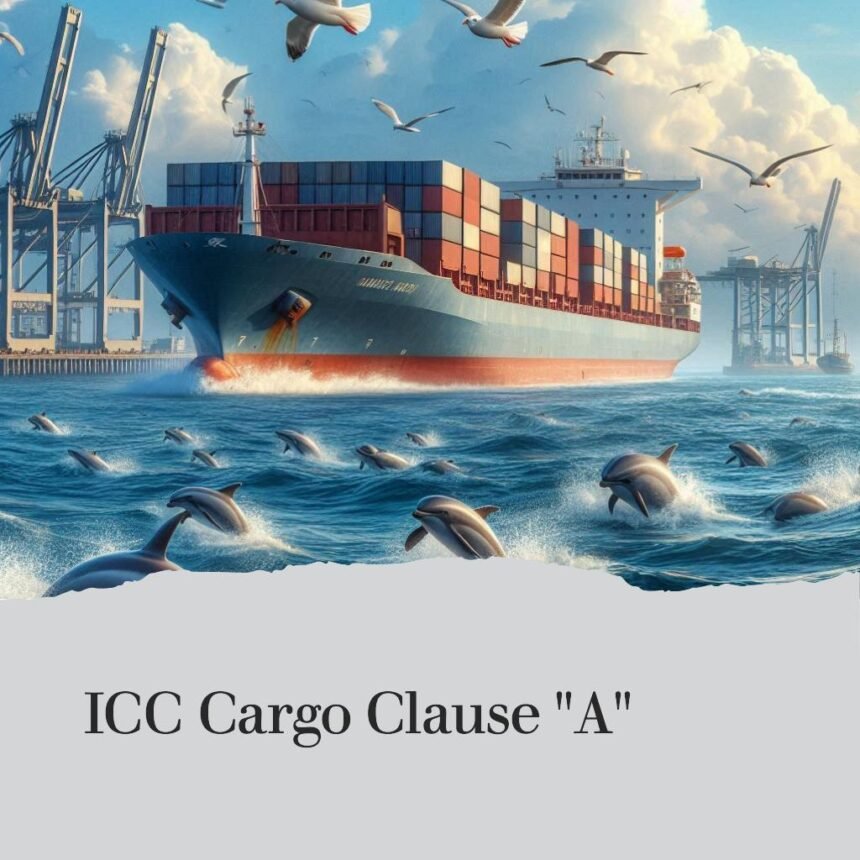The Institute Cargo Clauses (ICC) are standardized terms of insurance cover published by the Institute of London Underwriters (ILU). They provide a framework for the terms and conditions of marine cargo insurance policies. Among the various clauses, Institute Cargo Clause (A) is the most comprehensive, offering the widest form of coverage. Here’s an in-depth explanation:
Overview of Institute Cargo Clause (A)
Institute Cargo Clause (A) provides “All Risks” coverage. This means it insures against all risks of loss or damage to the insured cargo, except for those risks specifically excluded by the policy. The coverage is particularly suitable for high-value or particularly vulnerable goods.
Scope of Coverage
1. All Risks Coverage:
– The term “all risks” means that the insurer covers any physical loss or damage to the cargo, as long as it is not excluded by the clause. This includes a wide range of perils such as fire, explosion, vessel/craft sinking or stranding, overturning or derailment of land conveyance, collision, discharge at a port of distress, and more.
2. General Average and Salvage Charges:
– The policy covers general average and salvage charges incurred to avoid or minimize loss or damage to the cargo.
3. Theft and Pilferage:
– Loss due to theft, pilferage, and non-delivery is covered under ICC (A).
Exclusions
While ICC (A) offers broad coverage, certain exclusions apply, including:
1. Willful Misconduct:
– Loss or damage resulting from the willful misconduct of the insured is not covered.
2. Ordinary Leakage and Wear and Tear:
– Ordinary leakage, ordinary loss in weight or volume, or ordinary wear and tear of the insured cargo.
3. Insufficiency or Unsuitability of Packing:
– Loss or damage caused by insufficient or unsuitable packing or preparation of the goods, unless packed by a third party without the knowledge of the insured.
4. Inherent Vice:
– Loss or damage caused by inherent vice (a natural characteristic of the goods that causes deterioration without any external cause).
5. Delay:
– Loss or damage caused by delay, even if the delay is due to an insured risk.
6. Insolvency of Carrier:
– Loss or damage resulting from the insolvency or financial default of the owners, managers, charterers, or operators of the vessel.
7. War and Strikes:
– Loss or damage caused by war, warlike operations, civil war, rebellion, revolution, insurrection, or civil strife. Additionally, losses caused by strikes, lockouts, labor disturbances, riots, or commotions are excluded unless separate War and Strikes clauses are added.
Duration of Coverage
The coverage typically starts when the goods leave the warehouse or place of storage at the place named in the policy for the commencement of the transit, continues during the ordinary course of transit, and terminates on delivery to the final warehouse or place of storage at the destination named in the policy. It also terminates if the transit is interrupted for reasons beyond the control of the insured or if the goods are sold or the interest in the goods is transferred.
Claims Process
1. Notice of Loss:
– Immediate notice should be given to the insurer in the event of loss or damage.
2. Survey and Documentation:
– A survey may be conducted to assess the extent of the damage. The insured must provide all relevant documentation, including the insurance policy, shipping documents, invoices, and evidence of the loss.
3. Adjustment and Settlement:
– The claim is adjusted and settled based on the terms of the policy, considering the insured value, extent of the damage, and any applicable deductibles.
Benefits of ICC (A)
– Comprehensive Coverage:
– ICC (A) offers the most extensive coverage, minimizing the insured’s risk exposure.
– Flexibility:
– Suitable for various types of cargo and different modes of transport, including sea, air, and land.
– Peace of Mind:
– Ensures that most unforeseen events that could cause damage or loss to cargo are covered.
Conclusion
Institute Cargo Clause (A) is designed for shippers who require comprehensive protection against a wide array of risks during the transportation of goods. It provides peace of mind by covering almost all conceivable risks, subject to specific exclusions. Understanding the terms, coverage, and exclusions of ICC (A) is crucial for anyone involved in the transportation and insurance of goods to ensure that they are adequately protected against potential losses.










